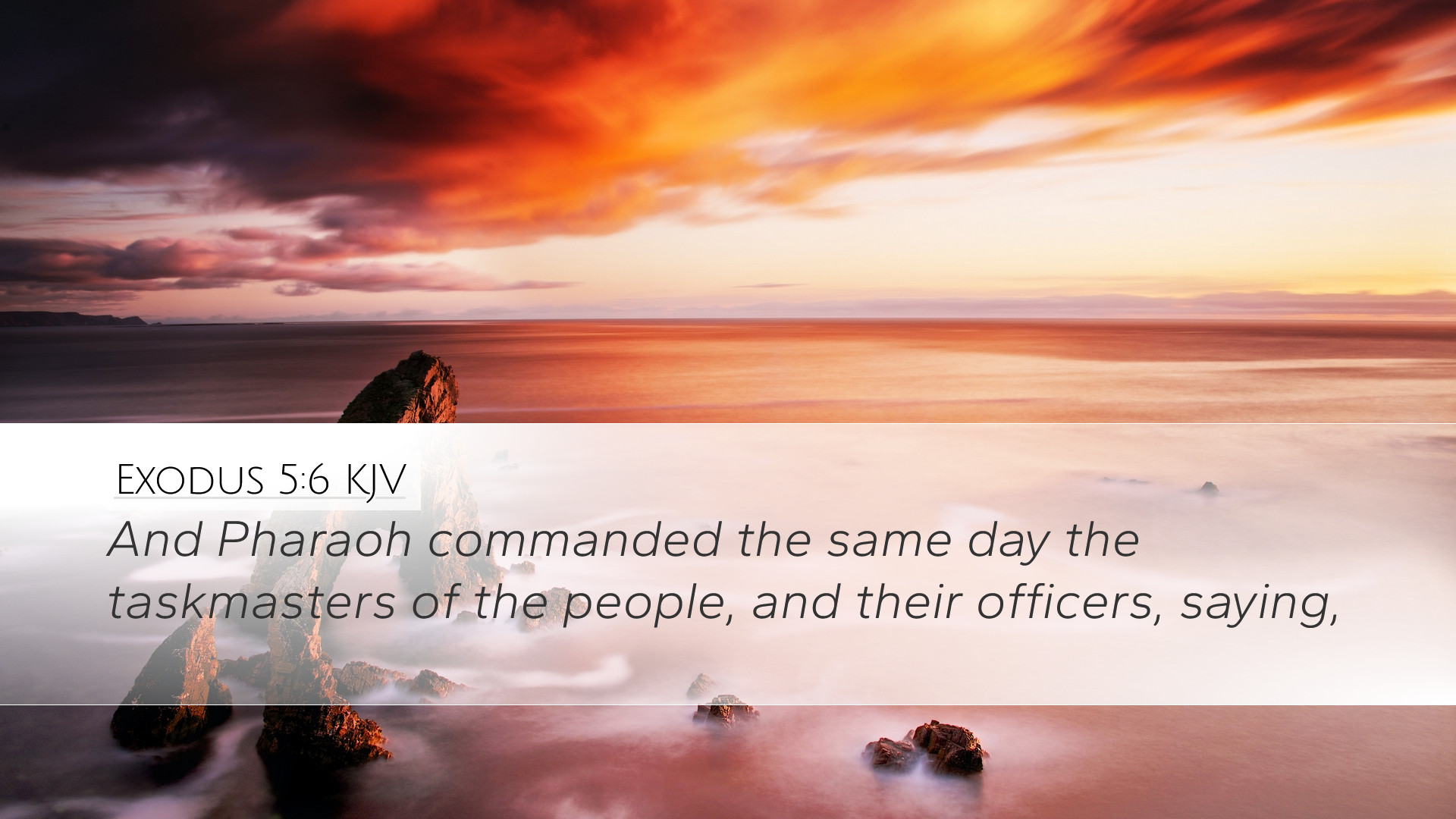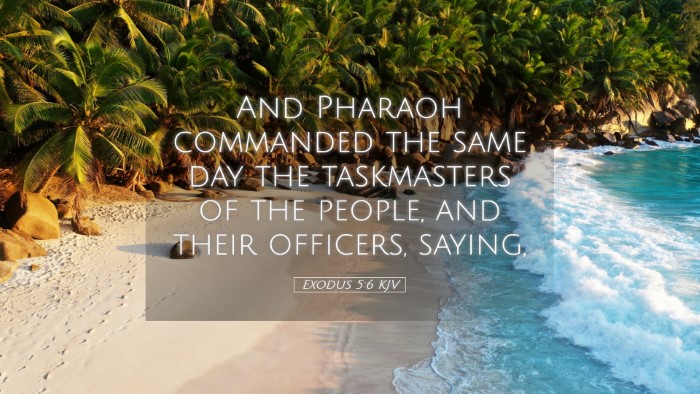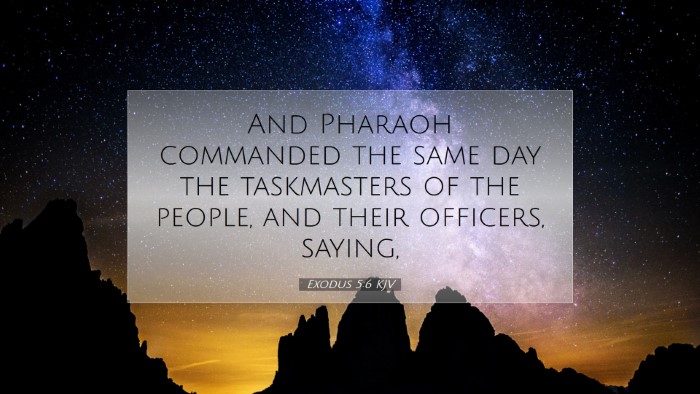Commentary on Exodus 5:6
Verse: "And the same day Pharaoh commanded the taskmasters of the people, and their officers, saying, Ye shall no more give the people straw to make brick, as heretofore: let them go and gather straw for themselves." (Exodus 5:6)
Introduction
The narrative within Exodus showcases the tension between Moses' call to liberate the Israelites from Egyptian bondage and Pharaoh's unyielding resistance. Exodus 5:6 signifies a pivotal moment, where the oppression and demands of Egyptian rulers intensify, reflecting deeper theological implications and historical context.
Contextual Analysis
This verse occurs shortly after Moses and Aaron confront Pharaoh, demanding the release of the Israelites for worship. Pharaoh’s reaction is one of anger and defiance, resulting in harsher conditions for the Israelites. This reflects a common pattern in the liberation narrative where oppressive regimes often respond to calls for release with increased oppression.
Commentary Insights
Matthew Henry's Commentary
Matthew Henry notes that Pharaoh’s command to the taskmasters is a calculated response to Moses' demand. He emphasizes the cruelty of Pharaoh, who not only refuses to comply but also escalates the burden upon the Israelites. Henry comments on the psychological impact of such oppression, recognizing that the deprivation of straw for brick-making symbolizes a greater spiritual and emotional burden. The Israelites are now left to labor under conditions that challenge their hope for deliverance.
Albert Barnes' Notes
Albert Barnes elaborates on the logistics of brick-making in ancient Egypt, detailing how straw was essential for creating the building material. The removal of this resource forces the Israelites into a desperate situation. He suggests that Pharaoh’s intent was to demonstrate his power and disregard for the Israelites’ welfare. By compelling them to gather straw themselves, Pharaoh intended to distract them and reduce their capacity for rebellion. Barnes also points out that this harsh treatment serves a dual purpose in God’s plan—demonstrating the severity of oppression and setting the stage for divine intervention.
Adam Clarke's Commentary
Adam Clarke offers insights into the significance of Pharaoh's orders. He highlights that the demand for the Israelites to gather their own straw, while still being required to meet the same quotas for bricks, illustrates the extreme exploitation characteristic of Egyptian slavery. Clarke posits that this act serves as a foreshadowing of the miraculous deliverance that will follow, portraying God’s sovereignty over human oppression. He stresses that the trials faced by the Israelites will ultimately contribute to their national identity and covenant relationship with God.
Theological Implications
This verse reflects deep theological themes such as oppression, divine justice, and the hope of redemption. The Israelites' suffering illustrates the broader human experience of injustice and the longing for liberation. This scenario becomes a lens through which we understand God's intervention in human history, culminating in acts of deliverance that resonate throughout Scripture.
Oppression and Suffering
The hardship faced by the Israelites under Pharaoh’s orders mirrors the suffering experienced in various contexts throughout biblical history and in contemporary society. Understanding the sociopolitical context allows pastors and theologians to draw parallels to modern forms of oppression, encouraging empathy and advocacy for the marginalized.
Divine Sovereignty
The narrative does not only highlight human suffering but also God's overarching plan. Even in the darkest moments of oppression, God remains sovereign and orchestrates events that lead to liberation. This assurance is vital for pastors and scholars when exploring themes of hope and resilience in the face of adversity.
Conclusion
Exodus 5:6 serves as a critical juncture in the liberation account of the Israelites. Through the insights gathered from prominent commentaries, we recognize the multifaceted implications of Pharaoh's command and its significance in the grand narrative of redemption. The harshness of the Israelites’ plight, the demonstration of Pharaoh's ruthless authority, and the anticipation of divine intervention all contribute to a deeper understanding of God's faithfulness amidst oppression.
As this commentary underscores, this verse invites pastors, scholars, and students alike to reflect on the nature of oppression, the character of God, and the hope inherent in His promises.


